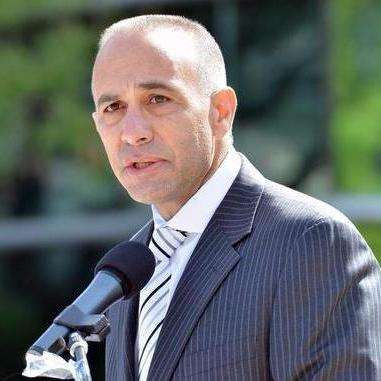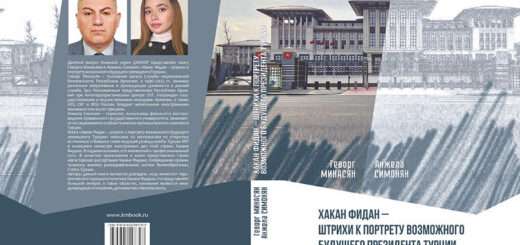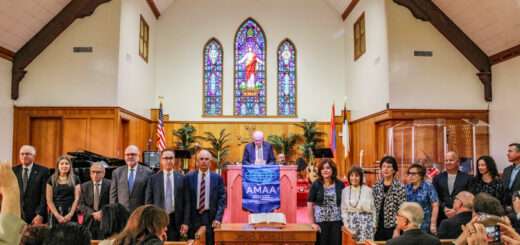Armen Hovannisian’s powerful speech at ANCA-WR banquet in Los Angeles on Oct. 26, 2025

From time to time, we find ourselves reaching out to the internet in search of wise words and phrases of famous poets, philosophers and statesmen.
We then sometimes try to repurpose their sayings to fit an Armenian environment, such as this one. Some of us have even probably tried to channel into an Armenian context the lofty language of FDR or JFK, Martin Luther King or Gandhi, Mother Theresa or Maya Angelou.
That’s all fine, but what we must understand is that we do not need to reach so far out to be reminded of who we Armenians are, why we’re here, and where we’re going. We have much closer to home more natural examples of leadership, patriotism and humanity, to follow, to be proud of, and to be inspired by.
Simon Vratsian was the last great prime minister of the Republic of Armenia and, of course, he was also so much more than that. Hitting home for my family, in the 1950s and 1960s, he was the exemplary mentor for someone very close to me and to this community, he was the catalyst for Professor Richard Hovannisian’s entire lifetime of scholarly activism.
Vratsian began his semi-biographical work called Kyanki Ughinerov with the following description about his own life’s journey:
“In the beginning was the land of Armenia and the Kingdom of Bagratuni-Ani. And Ani became Volga. And Volga became Crimea. And Crimea became Don. And Don became the Republic of Armenia. And the Republic became the entire world. And the Armenian became a citizen of the world.”
“This is my story,” writes Vratsian, “the story of all Armenians, past and present.”
Now if you shift the place names and put for example Haleb or Beirut in place of Ani, Los Angeles or Detroit instead of Volga, Paris or Venice instead of Crimea, Gyumri or Ghapan instead of Don, this really does become our story. We all end up in the same place, here in fact, as citizens of the Armenian Nation and of the world.
Again, there’s really no need for references to a Washington or a Lincoln or to a Churchill or a Mandela when we have in our own blood a Vratsian or a Vahan Cardashian and their generation of national role models.
As my father wrote:
“It was the generation that witnessed the annihilation of much of its nation, the crumbling of empires, and the emergence of new sovereign states.
It was the generation that forged the Republic of Armenia, strove against insurmountable odds to preserve its independence and tragically, with little other choice, had to deliver it to the Soviets.”
That generation, its mission fulfilled, has vanished and now that mission has been passed on to you, to the members and friends of the Armenian National Committee of America.
What we must do now, in 2025 and beyond, is to fight like hell to ensure that the legacy of a land and of a people–which rose from the rubble of shattered lives and of a ravaged homeland in 1915–remains alive and relevant and that, justice and accountability, in all their forms are pursued and by all means necessary.
There is, of course, another Armenian homeland and its people who walked through similar genocidal fire just two years ago, resulting once again in shattered lives and a ravaged homeland, for whom and for which we should also fight on all fronts to secure justice for the victims and accountability for the criminals.
I will now try to follow the rhythmic pattern of Simon Vratsian’s biographical journey with a more modern twist.
In the beginning–nearly 3,000 years ago–was the land of Artsakh and the Kingdom of Khachen, and Khachen became Vararakn, and Vararakn became Shushi, and Shushi became Berdzor, and Berdzor was ultimately hi-jacked to lead the Artsakhtsis forcibly out of their homes in 2023.
We must now work to reverse that order. Artsakhtsis right back through the Berdzor pass, back up to Shushi, back down to Vararakn or Stepanakert, back to the Kingdom of Khachen, back to the holy land of Artsakh.
But here’s the rub. While we work to hold Azerbaijan accountable in the United States Congress, in European courts and parliaments, in United Nations proceedings and in the minds and hearts of public opinion, it has become evident that some of our own in positions of great influence are trying to shame us, in fact to silence us into submission.
They would have us believe that Mt. Ararat–all of a sudden–is merely a figment of our imagination or, worse yet, of our destructive hallucinations, instead of a symbol of our strength, our unity and our ultimate destiny.
They would have us believe that Armenian Kharpert, Van, and Erzerum, Sepastia, Bitlis and Dikranagerd are Turkey’s for keeps, instead of the proper objects of our reparations and restitution efforts.
They would have us believe that the Armenian Constitution is a scandalous insult to an upstanding Azerbaijan and must be changed, instead of telling Azerbaijan to stay in its lane and shut the front door.
They would have us believe that the Armenian Apostolic Church is to be widely hazed and publicly humiliated instead of embraced and supported and loved.
They would have us believe that everything we’ve been taught by our parents and everything we’ve taught our children should be dropped and forgotten.
Enough of Avarayr and Khanasor, they would say, enough of Sardarabad and Bash-Abaran, enough of Njdeh, Dro and Antranig, enough of Khrimian Hayrik and Gomidas Vartabed, enough of Aghtamar, Varakavank and the Churches of Ani, enough of Pegor, Tatul and Monte, enough of Genocide recognition efforts, enough of Western Armenian roots and heritage.
Enough with all of you and enough with Hai Tad itself! So they have started to say.
They are trying to con our people that, in this recent fabrication called Real Armenia, Artsakh’s only place is in the dustbin of history and that Artsakh does not have any tomorrows left in its future. As if the debacle of August 8, 2025 closed the books for good on the Artsakh story with a few clicks of a White House camera.
They are trying to fool and condition our people into believing that Artsakh cannot legally lay claim to independence, autonomy, or any form of self-determination. That its people do not deserve the right to return to their homes or the right to redress their grievances.
That the liberation of Artsakh’s leaders and citizens from Baku’s deplorable prisons and worthless courts is not only unnecessary but, at most, a frivolous “Diasporan” issue.
That those in the Diaspora—that you–have no standing or say as to what may be the best interests of the Armenian people.
If all this is someone’s crippled vision of a Real Armenia, pardon the interruption, but we’ll have to take a pass.
In the name of all self-respecting Armenians, past and present, let’s not be silent.
Let our voices rise high to speak of our commitment to what those before us set out to do and let us tell those who live in darkness and fear, who are enemies and skeptics of light, that Artsakhtsi-Armenians and Armenians everywhere in the world have the fundamental right to live fully, to live freely and to live safely, especially in their current and ancestral homelands.





